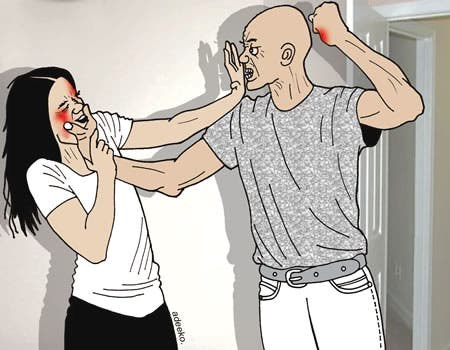A non-governmental organisation, Women’s Rights and Health Project (WRAPH) has said that wife battering topped the number of Sexual and Gender-Based Violence (SGBV) cases recorded in the Alimosho area of Lagos State from May 2017 to May 2020.
The Executive Director of WRAPH, Bose Ironsi, disclosed this while speaking with journalists on Monday to commemorate the 16 days of activism against SGBV, themed: “Orange the World: Fund, Respond, Prevent, Collect."
Ironsi said that WRAPH recorded 309 SGBV cases in the area within the period, comprising 124 cases of wife battering, 36 cases of defilement and rape; neglect and abandonment, 54; child physical abuse, 44 and others 51.
According to her, the NGO keeps an up-to-date record of information about reported cases by survivors who walked into the organisation and are referred for support.
“The majority of cases that are reported at WRAPH involves single perpetrators, with just 10 survivors reporting cases involving multiple perpetrators.
“All the survivors also reported that the perpetrators were known to them.
“These include spouses, trusted family members, friends, employers and neighbours,” she said.
She added that WRAPH was using the above insights and data to strengthen its interventions, support and referral services for survivors of SGBV.
She said that women and community members faced many challenges in accessing protection from SGBV.
“Majority of cases involving women who reported their husbands for the first time for threatening behaviour or abuse often ends up with their husbands released without penalty, punishment or compensation to the women.
“Emotional or financial dependence, fear or family or social pressure usually causes women to abandon the case and forgive the aggression.
“Law enforcement agencies are saddled with other security issues and are therefore not properly addressing cases of gender-based violence,” she said.
Ironsi, therefore, called on community leaders, law enforcement agencies and elective government officials to support the effective implementation of SGBV protection laws such as the 2007 Lagos State Domestic Violence Law.
She said that this could be achieved by taking a clear position that violence against women was unacceptable.



